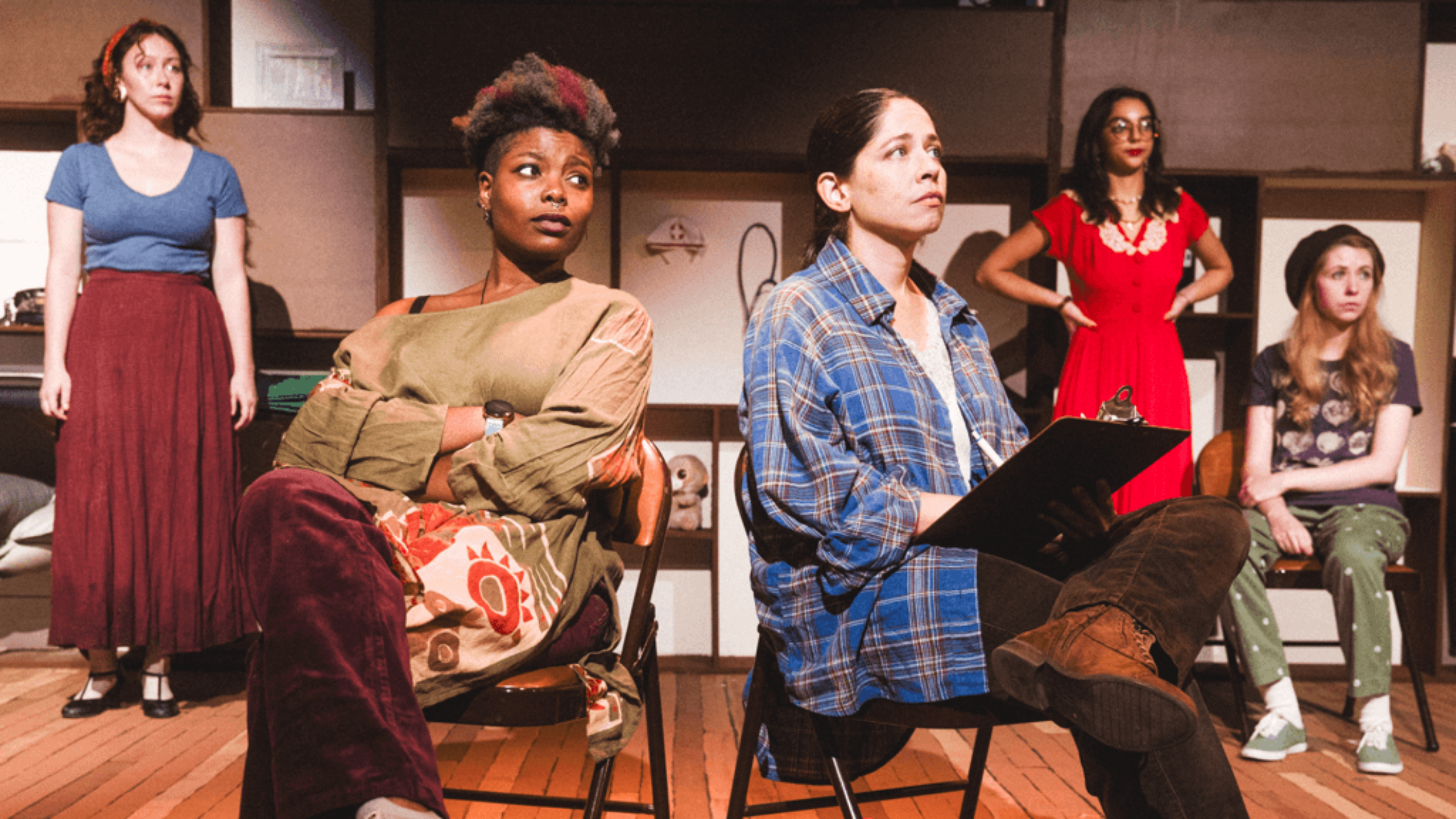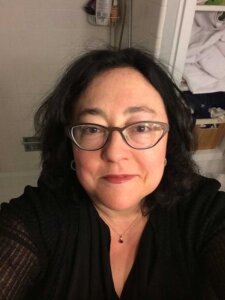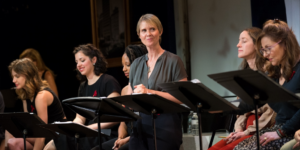Once, this play about an underground abortion network was history; now, it’s timelier than ever
Paula Kamen’s ‘Jane: Abortion and the Underground’ looks prescient in the post-Roe v. Wade era

Paula Kamen’s play Jane: Abortion and the Underground in its Idle Muse production. Courtesy of Idle Muse
Back in the early ’90s, when author and journalist Paula Kamen was speaking on a Jewish United Fund panel about feminism, she didn’t know much about the Jane Collective, the underground abortion network that performed almost 11,000 illegal abortions between 1969 and 1973.
“At that point, there was almost nothing written about Jane,” said Kamen, who has written books on chronic illness (All in My Head), feminism and the sexual revolution (Feminist Fatale, Her Way) and the tragic story of a fellow trailblazing journalist (Finding Iris Chang).
At that JUF panel, Kamen found herself seated beside one of Jane’s organizers, who told her about the organization that had offered life-changing and sometimes life-saving care to women across the Midwest who wanted to end their pregnancies in the years before Roe v. Wade.
Turned out that Jane had been headquartered in Hyde Park, home to the University of Chicago, the same neighborhood where Kamen was living at the time, and it had been run by graduate students.
“I thought it would make a great play,” Kamen told me. “I felt it was important to show that when abortion is illegal, it doesn’t stop, and even in the best of circumstances of underground abortions, there are still limits.”
Though Kamen had never written a play before, she relied on her experience as a journalist to tell a story that would both inform and captivate an audience.
“It was a way to do theater and start off with a foundation that I had a skill set in, which was finding people and bothering them as a journalist,” she said.
A kinship with Jane

Kamen says that part of what appealed to her about the story was the fact that she, like many members of Jane, came from a middle-class Jewish background.
“I do feel a kinship to the Jane members,” she said. “It’s amazing that there’s a disproportionate number of leaders in every generation of the women’s movement that have been Jewish.”
The fact that a lot of women involved with Jane were Jewish may have something to do with the Jewish stance on abortion.
“We have something close to consensus that when there’s a conflict between a mother’s life and a fetus’s life — the mother’s life is more important,” Felicia Kornbluh, a professor of history and gender at the University of Vermont and author of A Woman’s Life Is a Human Life, told me.
“Many sources, even conservative ones, say that up until birth, up until the baby draws its first breath, it’s not an independent being,” said Kornbluh. “It’s very different from Christian sources. That traditional legal approach, which is so widely shared in the Jewish world, makes the abortion issue so much less problematic. For reform Jews and conservative Jews, that traditional Jewish approach was understood as the mother’s life including her psychological health and economic wellbeing for her and her family.”
Ahead of the curve
As Kamen set about her research, she found that leaders of the Jane Collective were generally receptive and accustomed to talking about their work. Finding former Jane patients was harder. She put an advertisement in the Chicago Defender, the city’s oldest and most prominent African-American newspaper, and was able to find a few recipients of Jane’s care who were willing to tell their stories.
“There were a lot of painful memories associated with it because it was such an intense time where people’s mental health came last,” Kamen said. “It was difficult to get people to talk to me, but in recent years they’ve been getting much more open.”
These interviews formed the basis for a script that started out, Kamen says, consisting primarily of “verbatim monologues.” Over time, she replaced some of those monologues with dramatized scenes to create a more engaging production.

Jane: Abortion and the Underground premiered in Chicago’s Chopin Theatre in 1999 with the Green Highway Theater Company.
“Kamen’s play was really ahead of the curve,” Kornbluh said. “It was extraordinary and unique.”
The play didn’t shy away from the graphic realities of underground abortions. In fact, Kamen made the choice to depict abortions onstage. “Some of it is my journalism background, wanting to show the truth of what happened and the suffering women went through, how traumatic it was,” she said. “Even in the best of circumstances, illegal abortion is harrowing.”
At the same same time, though, Kamen also wanted to show audiences that many abortions were not complex surgical procedures. “When it was done early, it could have taken just a few minutes,” she said.
That first production, Kamen said, was met by protesters. “That was scary because in the ’90s and 2000s there had been bombings and killings of abortion doctors,” she said.
30 years later
Over the years, with more than a dozen productions of Jane across the country, including a 2019 benefit reading that starred Cynthia Nixon, Kamen has kept refining the play. The most recent production, currently at the Edge Theater in Chicago, has been lauded for its power and relevance. The Chicago Reader called it “well-paced and gripping,” while another publication said it was an “impressive piece of theater.” Though the play is now nearly 30 years old, the Supreme Court decision that overturned Roe v. Wade has made it seem prescient and timely.
“Almost every reading or performance since Trump got in has been sold out,” Kamen said. “I think younger people have all this anger about what’s going on and they need this place to sort of process what’s going on and do something constructive instead of feeling like a victim.”
The Play Jane: Abortion and the Underground, produced by the Idle Muse Theatre Company, runs through Oct. 15 at the Edge Theatre in Chicago.























